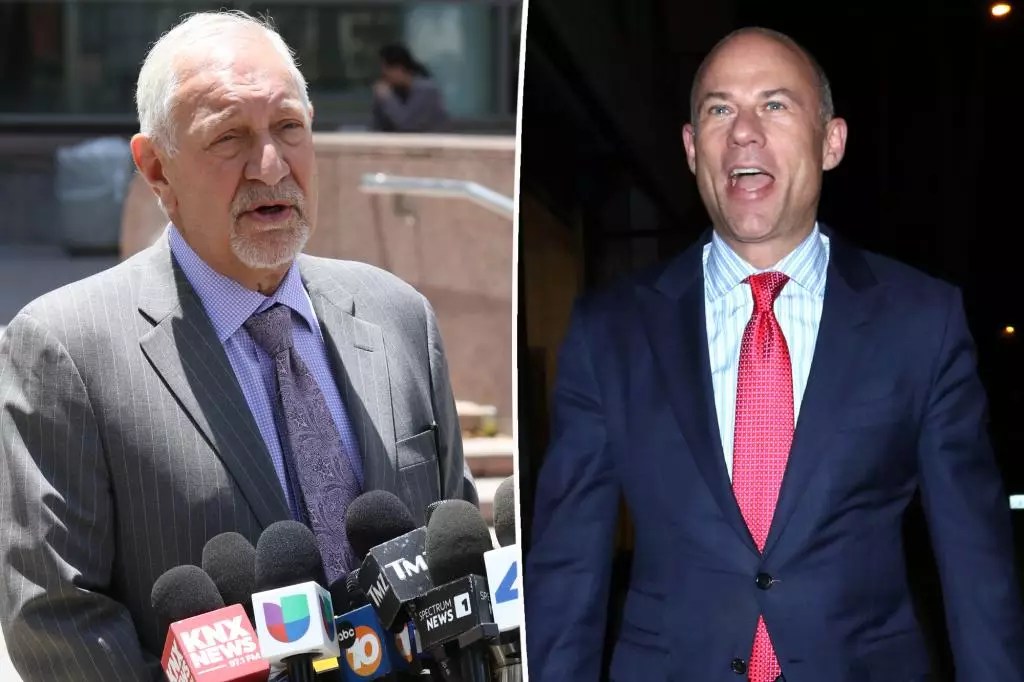The recent civil verdict against renowned attorney Mark Geragos unveils a sobering reality about the ethical boundaries often blurred within the legal profession. Known for defending high-profile clients like Michael Jackson and Winona Ryder, Geragos now faces scrutiny not for his courtroom tactics, but for his relationship with Michael Avenatti—a figure disgraced for orchestrating blackmail and criminal schemes. The case highlights a chilling truth: even the most celebrated lawyers are susceptible to compromised integrity when caught in the web of influential clients and complex legal maneuvering.
This verdict underscores how moral lapses transcend criminal accusations, seeping deep into civil responsibilities. Geragos was found to have knowledge of Avenatti’s misconduct and played a participatory role by offering encouragement or support. Such involvement signifies a breach of fundamental professional standards—most notably, loyalty and duty of care. While the jury stopped short of attributing causality for Franklin’s damages, the decision marks a symbolic setback for attorneys who may rationalize their actions as mere advocacy, ignoring the ethical lines they are sworn to uphold.
The case also shines a harsh spotlight on the reputation of the legal community. Geragos, once lauded for his charisma and courtroom prowess, now faces consequences that threaten to tarnish his legacy. His refusal to accept complete liability—claiming the verdict “amounts to near vindication”—reflects a dissonance between his perception of his role and the ethical standards that define the profession. This disconnect raises questions about accountability and whether the current legal framework adequately discourages behaviors that, while not criminal, undermine public trust.
The Consequences of Compromising Integrity for Power and Influence
At its core, this case reveals how the pursuit of strategic advantage can lead lawyers astray. Geragos’s involvement with Avenatti—an individual who, despite his legal prowess, engaged in criminal schemes—demonstrates a concerning pattern of ethical rationalizations. The fact that Geragos was listed as an unindicted co-conspirator suggests the thin veneer separating high-stakes legal practice from outright misconduct.
Moreover, the civil ruling serves as a stark reminder that the professional standard extends beyond winning cases; it encompasses unwavering integrity. For Franklin, a basketball coach caught in the crossfire of legal machinations, the verdict signifies a measure of accountability. It’s an affirmation that legal professionals are advocates not only for their clients but also for justice and ethical adherence.
Geragos’s case prompts introspection within the legal community—do lawyers prioritize loyalty to their clients over their oath to uphold the law? The answer, exposed here, appears troubling. The verdict implies that even seasoned attorneys can betray their ethical duties when tempted by influence, money, or reputation. Such behavior ultimately weakens the legal system’s foundations and fuels public skepticism.
The broader implications are equally significant. When influential lawyers sideline their moral compass, it sets a dangerous precedent—one that normalizes ethical compromises as long as they serve personal or client interests. This case should serve as a wake-up call: safeguarding the integrity of justice requires relentless vigilance and a willingness to confront uncomfortable truths about professional loyalty and ethical responsibility.


Leave a Reply